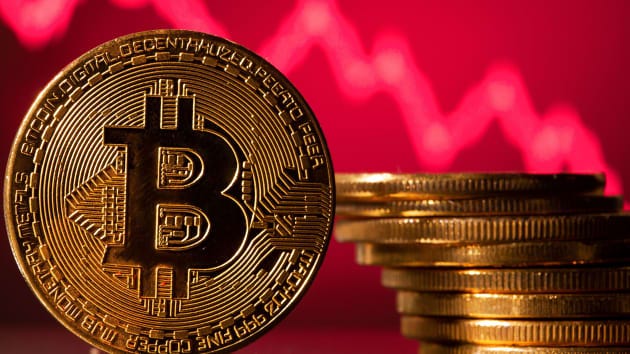Bitcoin Explained for Beginners
Some context and perspective
How we use money today
In order to truly understand why Bitcoin is relevant and why there are increasingly more and more people believing in it, we need to take a look at how we use money today:
We have our paper dollars (or any other currency) and metal coins, and when we use them to pay another person, the only thing that matters for the person receiving it is to make sure it’s not a forgery. This is pretty straightforward.
As we’ve become more digital, we have also moved the majority of our transactions digital. So think of your salary payment, your employer doesn’t call you in to give you a load of physical cash every month, they just transfer it electronically to your bank account, and all you have to do is to log in to confirm such money has been received.
Similarly, if you need to pay the bills or buy your groceries, you don’t really carry actual cash that often anymore, you will just tap your credit card, and voilà.
Now, in order to make these last 2 points work, we rely on companies that provide the service of storing, verifying, and approving your transactions. These are companies such as banks, Visa, Mastercard, Paypal, etc, as well as federal governments.
What are some of the key problems?
As these companies provide the services to facilitate transactions and money movement, we are also giving them an immense amount of control over our assets. Let me give you an example of what kind of issues we currently face: federal governments hold the complete and absolute power to print money, which more often than not results in inflation, which then causes your money to lose value, among other issues.
Let me give you another example: banks. If you are leaving your money in the bank, you have to trust that there is no malpractice, seizing, or freezing of your funds. As an Argentinian, “corralito” and “corralon” history are very fresh in our minds, during which all bank accounts were frozen overnight, and accounts in USD were forced to convert into Argentine pesos. 1 USD to 1 Argentine Peso.
You might think that this is too extreme of an example, but would you want to risk it? The majority of people in the world that lives on paychecks can’t afford to go through an incident half this magnitude.
On a more day-to-day impact, think of the inconvenience and cost of international bank transfers.
To quote the very same Satoshi Namakoto: “The root problem with conventional currency is all the trust that's required to make it work. The central bank must be trusted not to debase the currency, but the history of fiat currencies is full of breaches of that trust. Banks must be trusted to hold our money and transfer it electronically, but they lend it out in waves of credit bubbles with barely a fraction in reserve. We have to trust them with our privacy, trust them not to let identity thieves drain our accounts. Their massive overhead costs make micropayments impossible”.
About Bitcoin
With this context and perspective, hopefully it is a bit more evident why Bitcoin is here to solve a huge problem in our financial system.
Bitcoin is a peer to peer electronic cash system, allowing the transfers to happen between people without any banks or other middlemen.
In Yan Pritzker’s words, “Bitcoin offers an alternative to centrally controlled digital money with a system that gives us back the person to person nature of cash, but in a digital form”.
Let me share below some quick facts about Bitcoin:
When was in created? Back in 2008
Who created it? By a person or group of persons that used the pseudonym Satoshi Nakamoto. To this date, the true identity still remains unknown.
What is so special about it? Let’s zoom into some key features:
Peer to peer: this means that it’s from a person to another person directly, without any other middlemen that need to be a part in order to allow the transaction to happen.
Decentralized: Bitcoin is not run by a single person, group of individuals, companies, or organizations. There is no one centrally controlled server.
Scarcity: the maximum supply is 21 million Bitcoins, nobody can create more of them.
Open source: anyone can access and contribute to the protocol that Bitcoin runs on, which means that everyone can verify for themselves the history of all transactions that are recorded on the nodes, so there is no trust issue.
Over the years, Bitcoin has evolved into a lot more than an electronic cash system, and it’s fair to say that the main use case today is not to transfer money.
The vast majority of people accumulate Bitcoin as a store of value, and the reason why is going to be explained in the next article.

